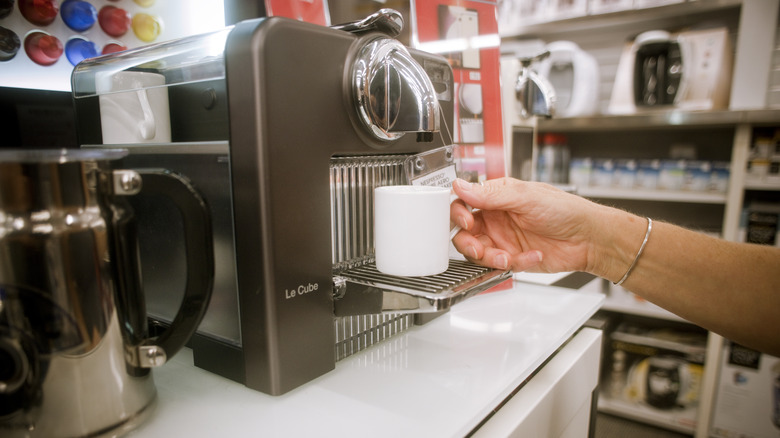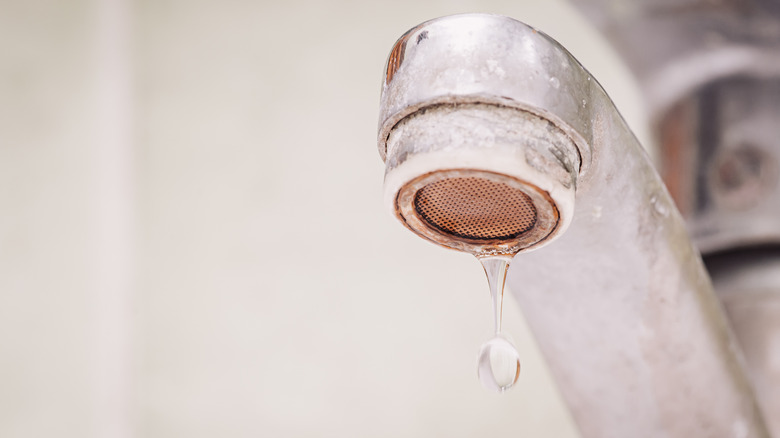Why You Should Be Filling Your Nespresso Machine With Purified Water
If you've never heard of hard water, know this: your Nespresso machine hates it. Household taps either release soft or hard supply, depending on where you live. The latter is naturally rich in magnesium and calcium, leaving chalky deposits called limescale when it comes into contact with surfaces. Since whatever your tap releases is outside of your control, the best option is always to fill your Nespresso tank with purified water. This way, you aren't taking the gamble. If you continue using hard water, your machine's tank will become thinly layered in a stubborn crust. In these scenarios, machines require descaling every three months, sometimes even more frequently.
If these signs already sound familiar, act fast. You'll know if you're dealing with limescale, as it's typically a sludgy white color. However, it can also appear brown, green, or black. It's not just unsightly, either. While hard water is not dangerous for human consumption, the remnants it leaves can be. It can damage your teeth, cause digestive issues, and act as a breeding ground for bacteria. It's not something your Nespresso machine wants, and it's definitely not ideal for you. Just make sure you're buying the best bottled water as an alternative.
What does hard water do to your machine's interior?
So, what's going on inside your machine when it faces continual hard water use? Firstly, it can interfere with the ability of appliances and pipes to heat properly by insulating them — for a coffee production system reliant on sensitivity to temperature settings, this is especially damaging. A Nespresso machine's controls range between 195 and 205 degrees F, ensuring it brews each bean type optimally. It actually prints unique barcodes on its Vertuo pods to facilitate this level of individual treatment. However, blends aren't optimized without adequate temperature control, and your wait time increases as heating becomes less efficient. The deposits might also cause a cleaning nightmare by clogging the appliance's pipes. And if a chunk of limescale happens to barricade areas near the dispenser spout, you could have a full-blown malfunction.
Taste-wise, hard water can come across as salty, bitter, or metallic due to its high mineral content. Of course, this has a knock-on effect on your coffee notes, often creating a chalky or unusually sharp quality (just like how hard water turns ice tea cloudy). In short, water is more than just an ingredient; it has the power to shape your entire coffee and mess up your kitchenware. Make the switch with your Nespresso machine urgently, as there's no point in shortening its lifespan and having lower-quality drinks.

